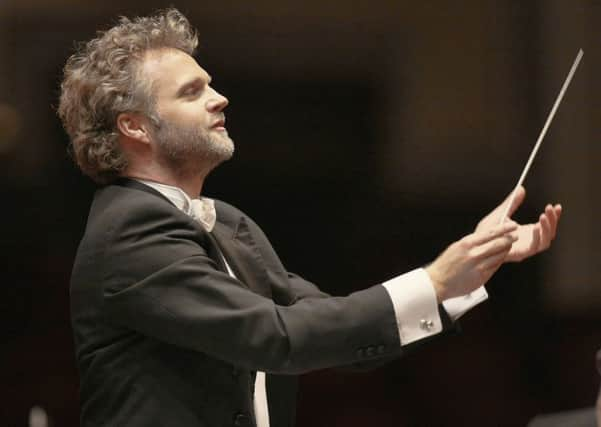Classical music interview: Ken Walton talks to Thomas Søndergård, new musical director of the RSNO


The Royal Scottish National Orchestra announced on Thursday that Thomas Søndergård is to be its new music director. This is fantastic news for the orchestra. The 46-year old Danish conductor is precisely the right man for the job.
How do we know this? Simple. Søndergård has been the RSNO’s principal guest conductor for the past five years. Almost any performance I’ve seen him direct has been a gem. Søndergård and the RSNO have a genuine connection. Sparks fly when they get together.
Advertisement
Hide AdAdvertisement
Hide AdWho else can make this orchestra play Beethoven the way he did last month, a performance of the First Symphony so clean and articulate, so stylistically refreshing, it was as if the notes were jumping off the page for the very first time? It takes something special to extract such classical authenticity from an orchestra more naturally geared to the heftier palate of Romanticism.
It’s an essential part of training a symphony orchestra, says Søndergård who, as musical director will now have a greater influence on how the RSNO sounds and develops. “Classical repertoire is important in teaching an ensemble to articulate,” he explains. “It’s like taking them back to learning the alphabet.” There can be a certain fear factor, he admits, but get the fundamentals right and they’ll approach the meatier repertoire with fresh insight.
That’s something the RSNO really needs just now. Under its current music director Peter Oundjian, who steps aside to make way for Søndergård at the end of the 2017-18 season, it is trundling along. The former Tokyo Quartet lead violinist has spent five years in the hot seat, but performances under him have seldom set the heather on fire.
It’s all to do with that magical ingredient: “connection”. Watch Oundjian at work, and you’ll note that he micromanages to the point of near suffocation. It’s as if the orchestra switches to neutral, the music freewheels, and slackness sets in. If there was ever a mutual spark there, it has diminished. On the other hand, watch them play under Søndergård, and you hear a completely transformed orchestra. Indeed, it’s been mooted for some time that the RSNO should have snapped up Søndergård as music director in 2012, but of course the BBC National Orchestra of Wales got in first.
What a transformation he has overseen in Wales, the most recent evidence of which is an exhilarating new recording of Sibelius’ First and Sixth Symphonies, released last week on the Linn label (CKD 502). There was once a time when you could easily identify the BBC Welsh on Radio 3 simply because it sounded second rate. That’s no longer the case, and Søndergård is the reason.
So what plans does he have when he eventually settles into his new RSNO role? Not surprisingly, there will be plenty Scandinavian repertoire, which has, he acknowledges, been part of the RSNO’s DNA ever since the early golden era of Sir Alexander Gibson. Plenty of Sibelius and Nielsen then.
More surprisingly, there will be opera, he reveals, citing the success Simon Rattle and the Berlin Philharmonic have had in mounting concert performances in their home city. “It’s so important for the players, something I learnt myself as an orchestral timpanist in Copenhagen. You learn how to accompany; it’s about cooperating rather than dictating.”
Advertisement
Hide AdAdvertisement
Hide AdWill he be here much? Søndergård says he will not dominate entire seasons. “Orchestras can get too much of the same face. I remember, as a player, when poor conductors could be too present. You need variation to keep developing. The same faces, the same gestures, might be good for continuity, but not always for creativity.”
“At BBC Wales I’m there six times a year plus two Proms. I expect to be here a little more than that with the RSNO. But equally, I want to help get other interesting conductors through the door too.”
Whether he’s physically present or not, Søndergård looks likely to have a profound influence on the fortunes of the RSNO.